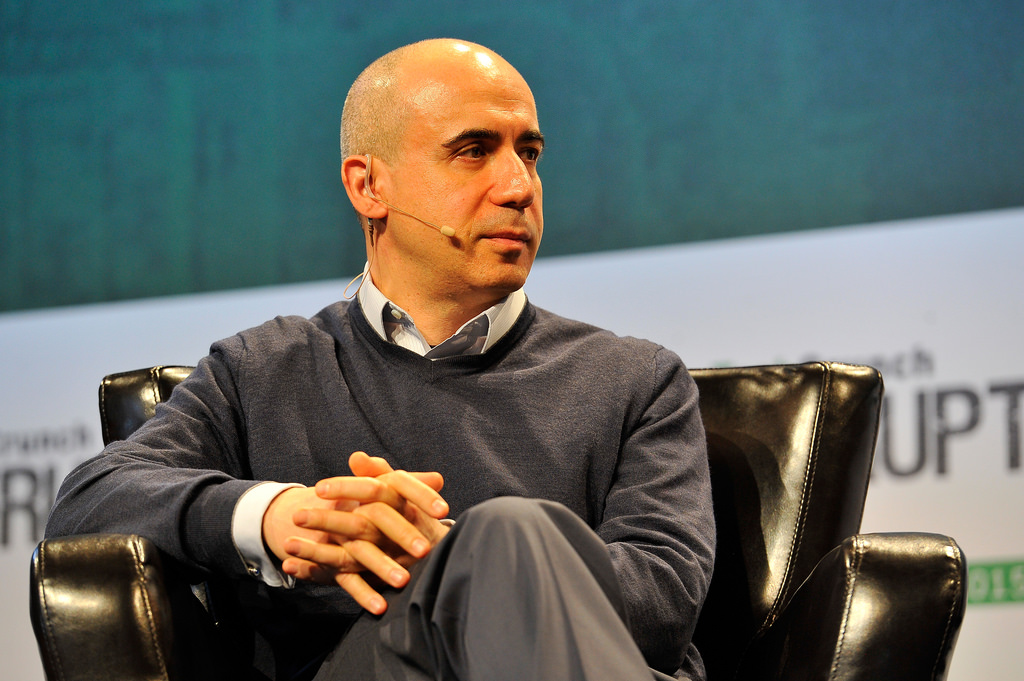At this point, there’s no sense denying that Facebook had a huge role to play in compromising U.S. democracy during the 2016 presidential elections. However, new information has come to light that reveals Facebook Founder Mark Zuckerberg’s ties to Russia actually dates back to the early days of the social network. What’s more, the site was warned of Russian interference a year before the 2016 elections, which seems to have been ignored.
Everything goes back to Russian billionaire Yuri Milner’s early backing of Facebook in 2009, when the company had yet to go public, The Los Angeles Times reports. Aside from Facebook, Milner also backed Twitter and several other Silicon Valley startups, which allowed them to thrive. This made the Russian one of the most influential investors in the U.S. tech industry.
However, according to leaked documents titled the Paradise Papers, it would seem that Milner was only able to invest in so many startups because he was given money by the Kremlin. This was done via an energy company called Gazprom, which then financed the investment firm called DST Global. DST Global was owned by Milner.
Zuckerberg was famously interviewed alongside Milner in 2009 when the Facebook Founder touted the investor’s expertise to help the social media site get off the ground. The same goes for Twitter, which confirmed that Milner had helped reel in investors in 2011. In a sense, these U.S. social media giants owe their existence to someone who could very well be working for Russia to destabilize U.S. democracy.
On the matter of the fake news controversy that continues to infest Facebook today, it would seem that the social network was warned a full year before the 2016 U.S. Presidential elections that Russia would attempt to spread misinformation. This warning apparently came from the Ukrainian government itself, which also suffered misinformation campaigns by Russia, according to an opinion piece in The Washington Times.
Ukraine had reportedly been suffering from similar attacks to sow dissent and division among its people for daring to have pro-Western sentiments. Had Facebook taken the warnings seriously, who knows if Donald Trump would still be president right now?



 TSMC Eyes 3nm Chip Production in Japan with $17 Billion Kumamoto Investment
TSMC Eyes 3nm Chip Production in Japan with $17 Billion Kumamoto Investment  Nvidia, ByteDance, and the U.S.-China AI Chip Standoff Over H200 Exports
Nvidia, ByteDance, and the U.S.-China AI Chip Standoff Over H200 Exports  SpaceX Updates Starlink Privacy Policy to Allow AI Training as xAI Merger Talks and IPO Loom
SpaceX Updates Starlink Privacy Policy to Allow AI Training as xAI Merger Talks and IPO Loom  Alphabet’s Massive AI Spending Surge Signals Confidence in Google’s Growth Engine
Alphabet’s Massive AI Spending Surge Signals Confidence in Google’s Growth Engine  Nvidia Confirms Major OpenAI Investment Amid AI Funding Race
Nvidia Confirms Major OpenAI Investment Amid AI Funding Race  Baidu Approves $5 Billion Share Buyback and Plans First-Ever Dividend in 2026
Baidu Approves $5 Billion Share Buyback and Plans First-Ever Dividend in 2026  Oracle Plans $45–$50 Billion Funding Push in 2026 to Expand Cloud and AI Infrastructure
Oracle Plans $45–$50 Billion Funding Push in 2026 to Expand Cloud and AI Infrastructure  SpaceX Reports $8 Billion Profit as IPO Plans and Starlink Growth Fuel Valuation Buzz
SpaceX Reports $8 Billion Profit as IPO Plans and Starlink Growth Fuel Valuation Buzz  Nvidia CEO Jensen Huang Says AI Investment Boom Is Just Beginning as NVDA Shares Surge
Nvidia CEO Jensen Huang Says AI Investment Boom Is Just Beginning as NVDA Shares Surge  Nvidia Nears $20 Billion OpenAI Investment as AI Funding Race Intensifies
Nvidia Nears $20 Billion OpenAI Investment as AI Funding Race Intensifies  OpenAI Expands Enterprise AI Strategy With Major Hiring Push Ahead of New Business Offering
OpenAI Expands Enterprise AI Strategy With Major Hiring Push Ahead of New Business Offering  AMD Shares Slide Despite Earnings Beat as Cautious Revenue Outlook Weighs on Stock
AMD Shares Slide Despite Earnings Beat as Cautious Revenue Outlook Weighs on Stock  Tencent Shares Slide After WeChat Restricts YuanBao AI Promotional Links
Tencent Shares Slide After WeChat Restricts YuanBao AI Promotional Links  Jensen Huang Urges Taiwan Suppliers to Boost AI Chip Production Amid Surging Demand
Jensen Huang Urges Taiwan Suppliers to Boost AI Chip Production Amid Surging Demand  SoftBank and Intel Partner to Develop Next-Generation Memory Chips for AI Data Centers
SoftBank and Intel Partner to Develop Next-Generation Memory Chips for AI Data Centers  Palantir Stock Jumps After Strong Q4 Earnings Beat and Upbeat 2026 Revenue Forecast
Palantir Stock Jumps After Strong Q4 Earnings Beat and Upbeat 2026 Revenue Forecast  Amazon Stock Rebounds After Earnings as $200B Capex Plan Sparks AI Spending Debate
Amazon Stock Rebounds After Earnings as $200B Capex Plan Sparks AI Spending Debate 































